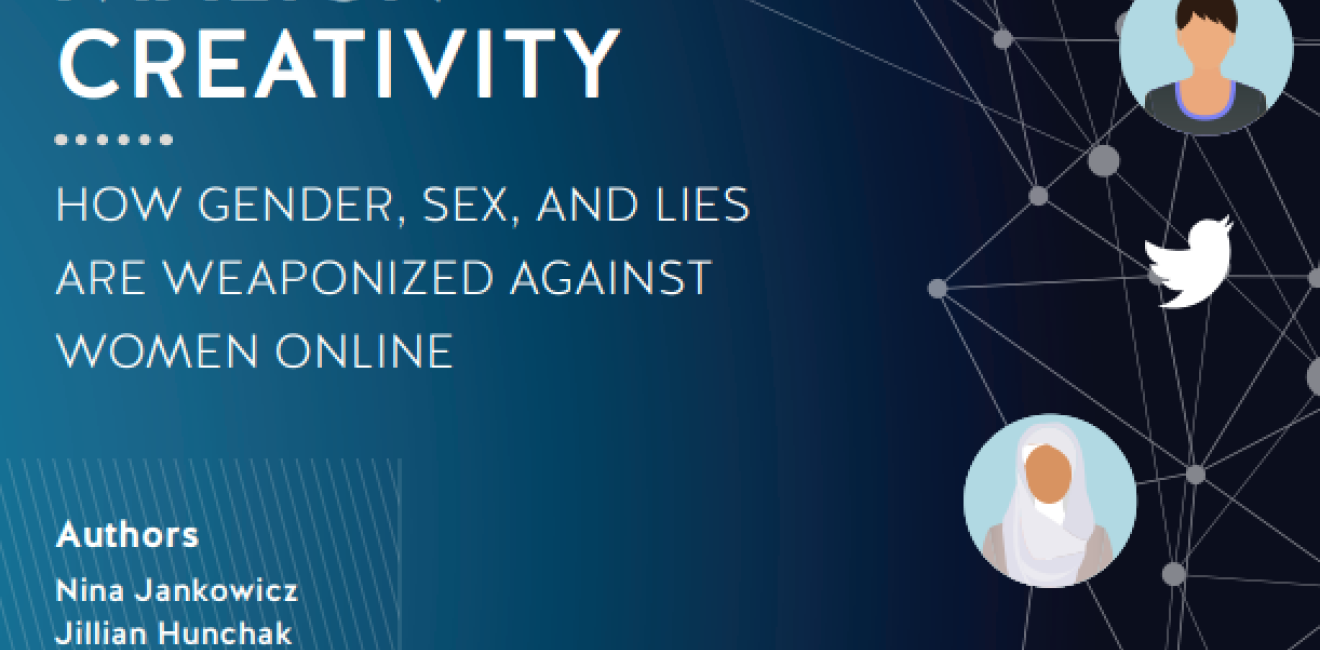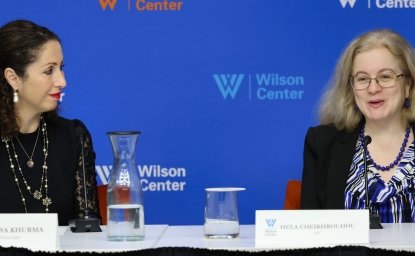PRESS RELEASE
Contact: Ryan McKenna
Phone: (202) 691-4217
ryan.mckenna@wilsoncenter.org
January 25, 2021
WASHINGTON- Online gendered and sexualized abuse and disinformation against women in public life is widespread, and social media platforms are doing too little to stop it, finds a landmark study by the Woodrow Wilson International Center for Scholars and Moonshot CVE.
"Malign Creativity: How Gender, Sex, and Lies are Weaponized Against Women Online" explores gendered abuse and disinformation targeting 13 female politicians across six social media platforms over two months in late 2020. In an analysis of over 336,000 pieces of abusive content shared by over 190,000 users, the research team found:
- Generalized gendered abuse online was far more widespread than disinformation. Terms indicating gender-based abuse accounted for 50.4% of the total data collected, and 12 of 13 subjects were targeted with such content;
- Nine research subjects were subject to gendered or sexualized disinformation narratives, with women of color subjected to intersectional narratives also targeting their race or ethnicity. The detected disinformation narratives were sexual, transphobic, and racist in nature;
- Vice-President Kamala Harris was targeted with an overwhelming amount of abuse during the 2020 election campaign, with 78% of the total data collected targeted at her. Many abusive posts spread false, sexualized narratives about Vice President Harris;
- Malign creativity—the use of coded language; iterative, context-based visual and textual memes; and other tactics to avoid detection on social media platforms—is the greatest obstacle to detecting and enforcing against online gendered abuse and disinformation.
The study also draws on focus group discussions with women who have endured online gendered harassment and abuse, and on interviews with women targeted by Russian, Iranian, and Chinese state-sponsored disinformation campaigns. It underlines both the offline toll that online abuse takes and the fact that gender inequality has national security implications. Finally, the study provides recommendations for social media platforms, government policymakers, and employers to mitigate the problem in service of a more equitable, democratic future.
Though 2021 will be a year of historic firsts for American women in elected office and public service, for these women, and many others in journalism, activism, academia, and beyond, engagement in public life comes with a tacit cost. Social media platforms, lauded for connecting people, for helping protest movements organize, and for giving up-and-comers in a variety of fields the ability to compete, are also vectors for harm. Disproportionately, that harm—in the form of gendered and sexualized harassment and disinformation—is directed at women, particularly women of color. As "Malign Creativity" demonstrates, the cumulative impact of these online behaviors carries a huge risk not only for women's equality, but for national security, and more broadly, the health of democracy itself.
Nina Jankowicz, the Wilson Center’s Disinformation Fellow and lead author of the report, said: “In the past year alone I have been targeted with thousands of hateful messages attacking me on the basis of my gender. Too many of my colleagues face the same vitriol, simply for doing their jobs and expressing their opinions while women. Online misogyny may be the norm now, but we trust this report will lead to change that makes the internet a more equitable place for women's voices. Our democracy and national security depend on it."
Notes to editors:
The Wilson Center provides a strictly nonpartisan space for the worlds of policymaking and scholarship to interact. By conducting relevant and timely research and promoting dialogue from all perspectives, it works to address the critical current and emerging challenges confronting the United States and the world.
-30-

Digital Futures Project
Less and less of life, war and business takes place offline. More and more, policy is transacted in a space poorly understood by traditional legal and political authorities. The Digital Futures Project is a map to constraints and opportunities generated by the innovations around the corner - a resource for policymakers navigating a world they didn’t build. Read more


Science and Technology Innovation Program
The Science and Technology Innovation Program (STIP) serves as the bridge between technologists, policymakers, industry, and global stakeholders. Read more





